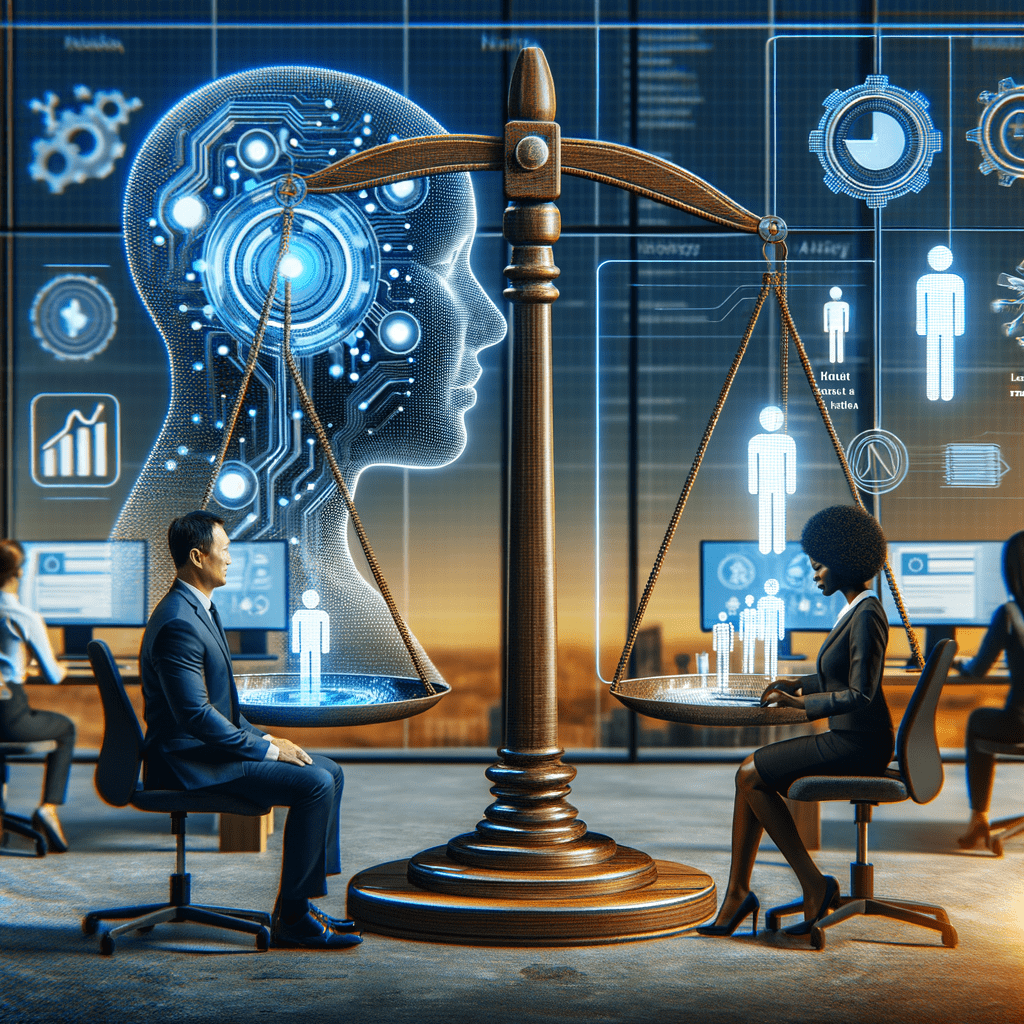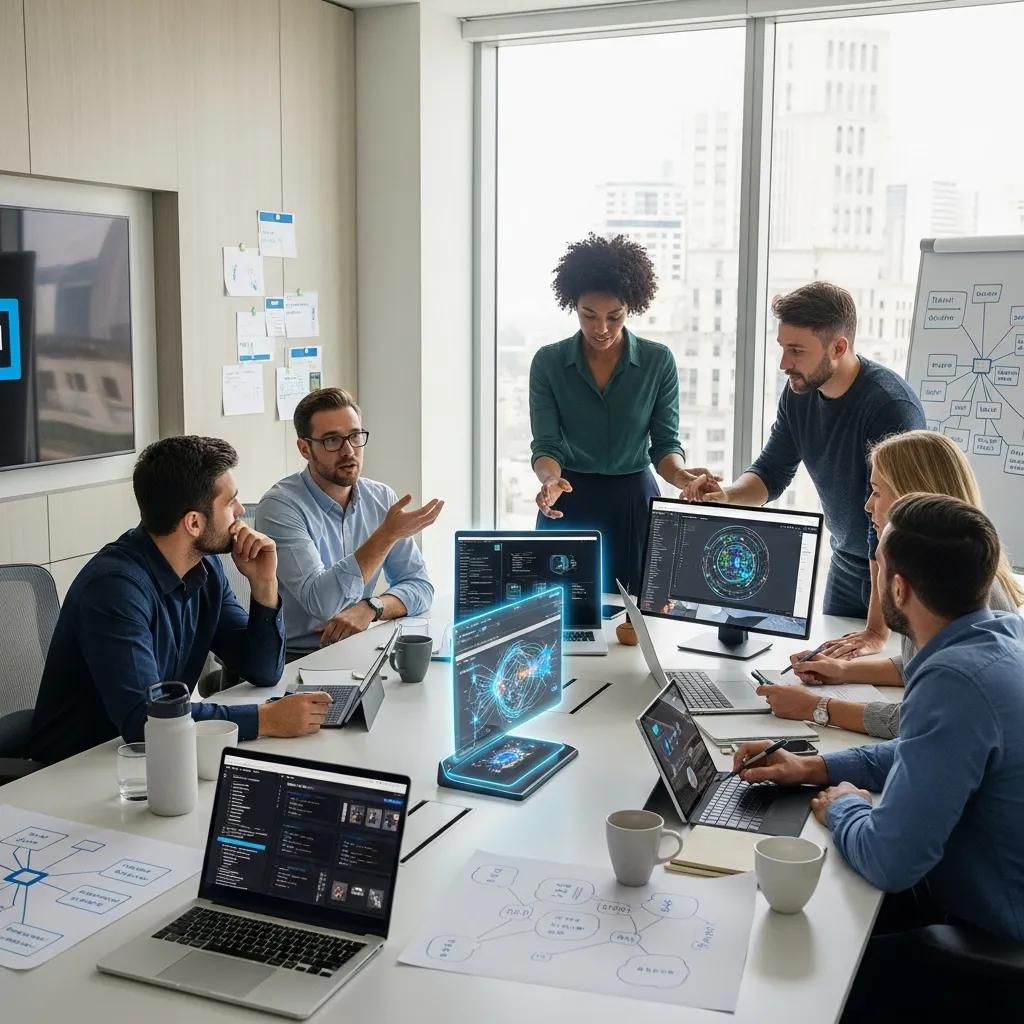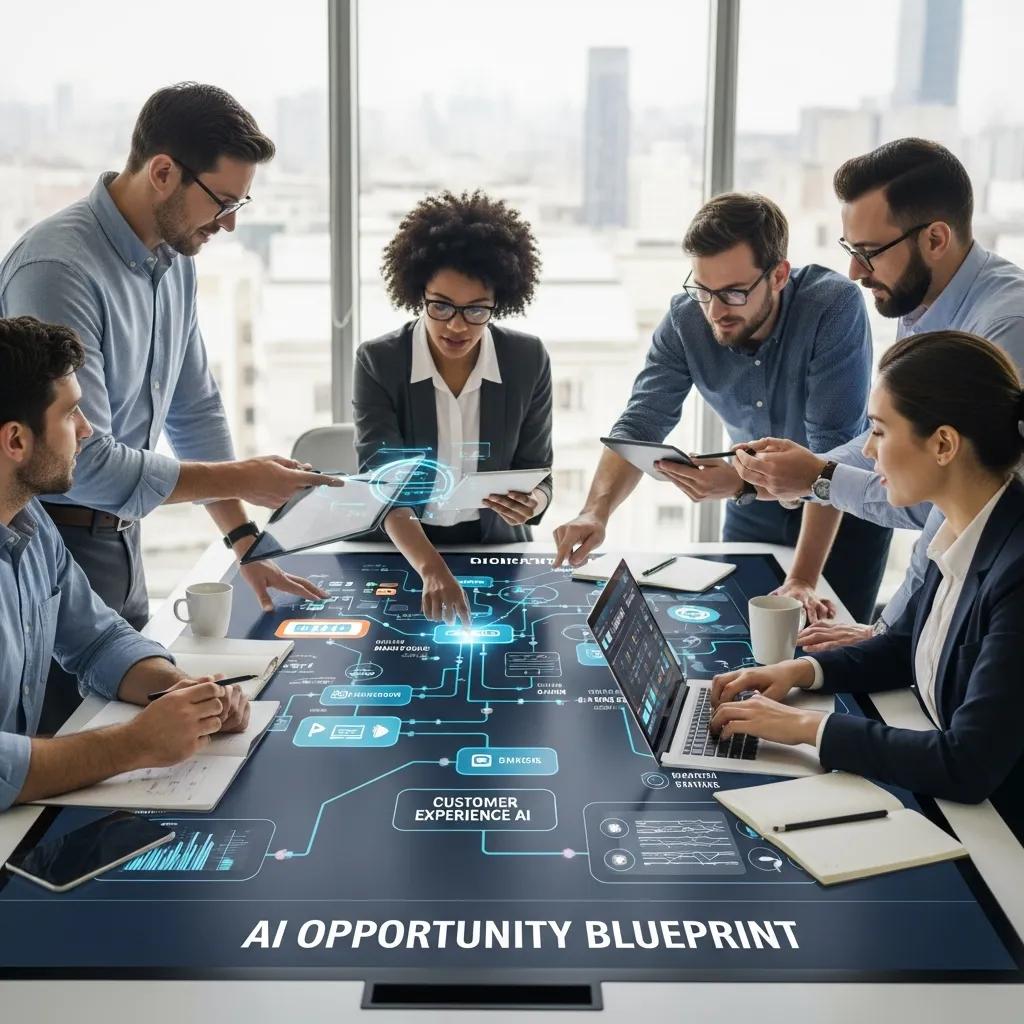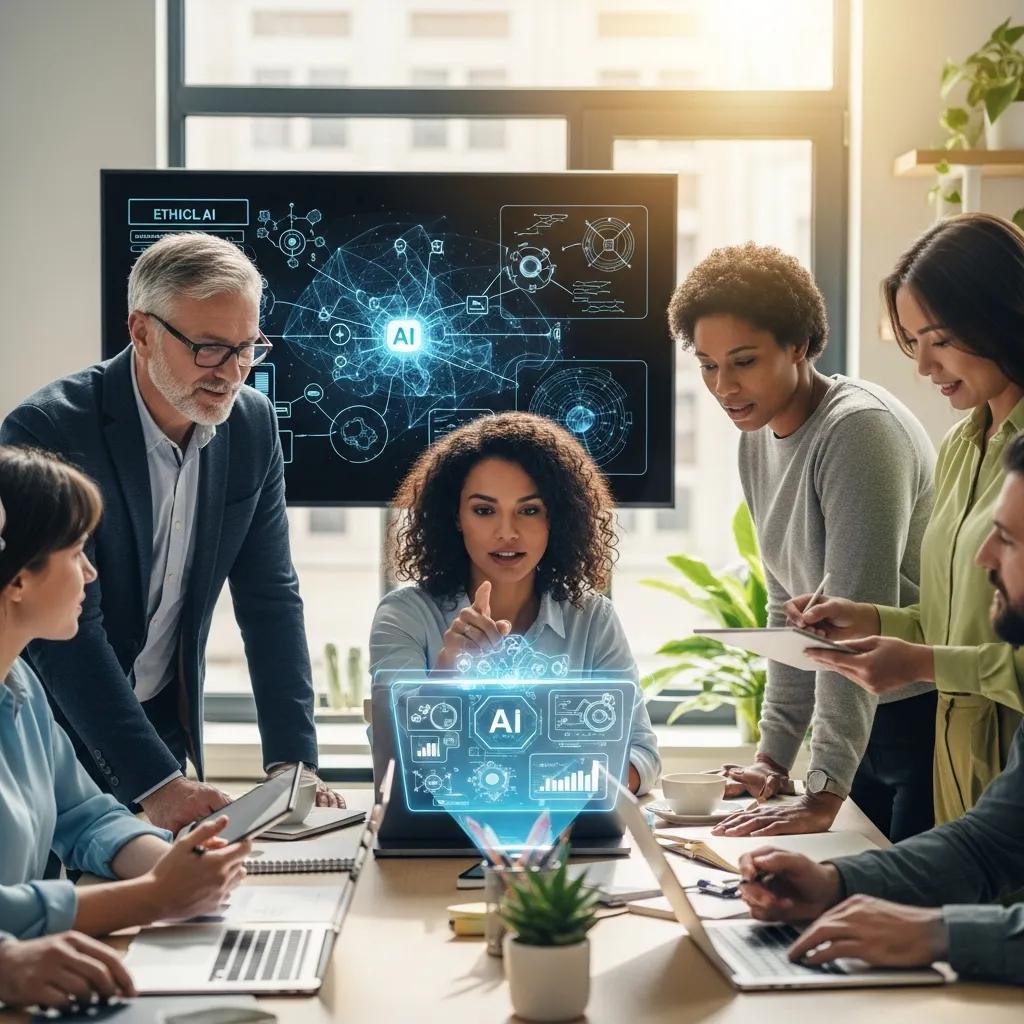These days, everyone’s buzzing about artificial intelligence. But for those of us in HR, the real game-changer is generative AI in HR. This isn’t just another tech trend—it’s a fundamental shift that will revolutionize how we work and interact with employees. While generative AI is a hot topic, Gartner projects that only 75% of companies will utilize it by 2026. This is a significant increase from a mere 5% in 2023, presenting a substantial opportunity for HR to take the lead. But what exactly is generative AI, and what can it really do for HR departments?
Generative AI in HR: Beyond the Hype
Unlike traditional AI, which analyzes data and makes predictions, generative AI goes a step further. It creates new content based on the data it learns. Consider writing a job description. You would typically spend hours finding the perfect language to attract top talent. However, with generative AI, you simply provide the system with information about the role and company culture, and it will generate a first draft.
Many HR leaders hesitate, fearing change. This is understandable, but 76% of HR leaders are already embracing this technology. A 2024 Gartner survey even revealed that many consider it crucial for maintaining a competitive edge.
Reshaping the HR Landscape
Generative AI in HR has far-reaching implications. It’s not just about automating tasks; it’s about reimagining how we approach everything from acquiring new talent to fostering employee development.
Streamlining Mundane Tasks
Generative AI can handle routine, time-consuming tasks. This allows HR teams to focus on strategic initiatives and meaningful interactions. According to Microsoft, 70% of employees are comfortable utilizing AI for these tasks.
Here are some examples of how AI tools can streamline HR tasks:
- Drafting job descriptions.
- Creating personalized emails to candidates.
- Answering frequently asked employee questions.
- Summarizing performance feedback.
- Generating reports.
This frees up time for HR professionals to focus on activities like coaching managers, developing leadership programs, and analyzing talent trends.
Enhanced Talent Acquisition
Recruiting can be a time-consuming process. Fortunately, generative AI is transforming talent acquisition.
Imagine this: a generative AI system helps write your job descriptions. It can incorporate real-time industry data and pull information from previous job postings to create a more effective and engaging job description based on past successes. It can then use its advanced algorithms to identify ideal candidates and even generate engaging messages to reach out to them.
This means reaching more high-quality applicants while gaining more time for meaningful conversations. A 2024 SHRM survey indicated that 65% of HR professionals are already leveraging AI for crafting job descriptions. Such advantages demonstrate the transformative potential of generative AI in reshaping the recruitment process.
Boosting Employee Engagement
Generative AI is not merely an efficiency tool; it can also enhance employee experience. Consider AI-powered chatbots that can respond to employee queries instantly, regardless of the time of day. These chatbots could also provide personalized feedback and development suggestions based on individual performance data.
They can even help create targeted learning journeys that address specific skills gaps. This leads to greater employee satisfaction, increased productivity, and enhanced professional growth, ultimately creating a more fulfilling work environment.
In a case study by Manipal Health Enterprises, integrating a generative AI solution for employee queries provided their staff with 24/7 access to a knowledgeable HR virtual assistant. Employees could get immediate and accurate responses to their questions about payroll, benefits, and even company policies.
Deeper Insights from Data
HR departments often struggle to make sense of the massive amounts of employee data. Generative AI offers a practical solution by helping create visualizations, summaries, and reports, making it easier to uncover hidden patterns and trends. This provides valuable insights into employee attrition, helps predict skill gaps, and even anticipates future training needs.
AI empowers HR to take a more data-driven and proactive approach, allowing them to address potential issues before they arise. This results in stronger workforce planning, more informed talent management, and improved strategic decision-making.
The Impact of Bias
While the benefits of generative AI are evident, there are crucial considerations, such as potential bias, which is a significant concern.
Recognizing the Potential for Harm
These powerful AI tools learn from massive datasets that reflect the real world, including its inequalities. Consequently, AI systems can perpetuate and amplify existing biases if not used responsibly. If the data used to train these systems is skewed, the output will also be biased.
For instance, an AI designed for recruitment might unfairly favor certain demographics if the training data primarily consists of a specific gender or ethnicity. Similarly, a talent assessment system that relies on flawed data could hinder the career progression of certain employee groups due to inherent algorithmic bias. As highlighted in an article by Textio, biased input directly leads to harmful output.
Mitigating Bias
Addressing bias in AI requires continuous effort, from recognizing and mitigating biases in the training data to refining algorithms to eliminate harmful patterns. Here are some steps to consider:
- Ensure your data sets are representative and inclusive.
- Implement clear ethical guidelines for AI use within the HR team to promote responsible application.
- Regularly audit and monitor generative AI output to identify and address any unintended biases that may emerge.
- Provide clear channels for employees to report concerns about AI fairness and bias, fostering transparency and trust.
- Collaborate with experts and specialists to navigate the ethical and societal impacts of AI effectively.
The Human Touch in the Age of AI
As AI becomes increasingly prevalent in HR processes, it prompts questions about the evolving role of HR professionals and the continued relevance of their skills in this changing landscape.
The Future of HR
Generative AI is not a replacement for HR professionals but rather a tool that can enhance their abilities. While these systems excel at automating tasks and processing information, they still struggle with uniquely human skills, such as:
- Empathy.
- Emotional intelligence.
- Complex decision-making.
- Building relationships.
- Mentoring teams.
- Providing ethical guidance.
- Navigating the nuances of human behavior.
Successfully integrating generative AI in HR also demands expertise. Skills such as prompt engineering, where you can fine-tune AI systems, are essential to achieve truly impactful results. Instead of making HR roles obsolete, this new technology will make them more sophisticated. In fact, research from Deel has shown that larger companies (500+ employees) have been more likely to integrate AI due to their larger processes and departments. However, eventually, companies of all sizes will need to adopt it. AI adoption may even create new HR jobs, such as managing these systems or designing AI training programs for the entire company.
The key for HR is to remain adaptable, learn to apply these tools strategically, and upskill themselves and their employees to harness AI’s power. For example, HR teams can benefit from training like the one offered by HBR, which focuses on intelligent interrogation. This type of training can help HR professionals craft effective prompts for AI tools, ensuring they receive the most accurate and helpful results.
OpenAI’s ChatGPT experienced unprecedented growth, amassing 100 million users within just two months of its launch, surpassing the growth rate of any other app in history. World Bank data reveals that this equates to a remarkable 1.4 billion users within the working population alone, all within a mere two-month timeframe. The rapid adoption of such technologies underscores the need for HR leaders to make swift decisions about how their teams can effectively adapt to and utilize emerging technologies.
Embracing Change
Generative AI’s impact on HR is undeniable. Certain sectors, particularly finance and healthcare, have adopted it more rapidly due to the higher demands for data privacy, regulatory compliance, and detailed internal documentation. However, in the coming years, this technology will revolutionize business operations across all industries.
While the rapid pace of technological advancement can feel overwhelming, those who embrace the full potential of generative AI will gain a significant competitive advantage. They will be better equipped to attract, develop, and retain top talent. As we leverage its capabilities, we must use these AI systems responsibly. We need to ensure that they enhance human capabilities while upholding fairness, ethics, and diversity.
FAQs about generative AI in HR
How is generative AI being used in HR?
HR teams use generative AI in various ways, such as speeding up routine tasks. This includes generating first drafts of job descriptions, personalized emails, and reports. It also extends to creating conversational virtual assistants that provide quick and helpful answers to frequently asked employee questions.
How can AI be used in HR processes?
Think of AI as a valuable tool that can streamline processes and create a more positive employee experience. For instance, it can analyze employee data to generate insightful reports and anticipate potential skill gaps before they impact the organization.
How does generative AI differ from other forms of artificial intelligence in HR?
Generative AI doesn’t just analyze or predict based on existing information; it creates entirely new content. This includes documents, code, and even creative text formats, all based on the data it has learned.
What is an example of AI in HRM?
An AI-powered recruitment process is one example. This technology assists in creating tailored job descriptions and automates personalized follow-up communication with candidates, expediting the hiring process.
Addressing Inherent AI Bias in HR
Over the past few decades, innovations like cell phones, personal computers, and the internet have transformed our world. Generative AI in HR is poised to have a similarly profound impact, reshaping how we work and interact with employees.
This journey requires careful research and testing to ensure that the chosen generative AI solutions align with specific company needs and cultures. There will be challenges as this technology evolves, and we will need to adapt and acquire new skills to use it effectively and ethically. By embracing generative AI’s full potential, HR can help create a more human-centric and fulfilling work environment.






